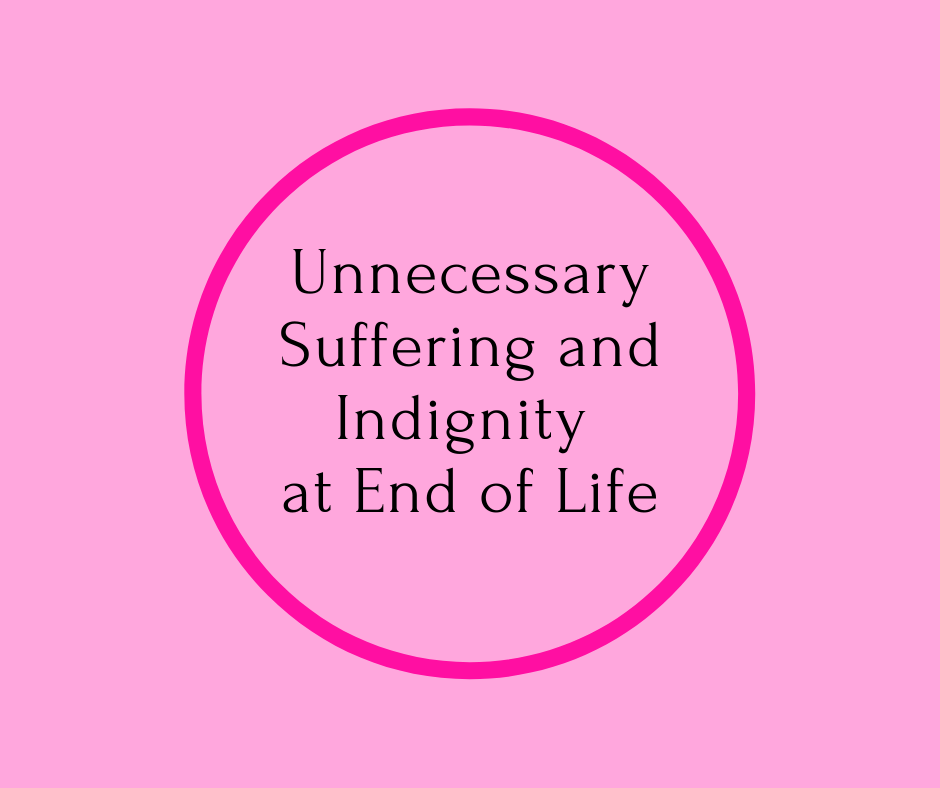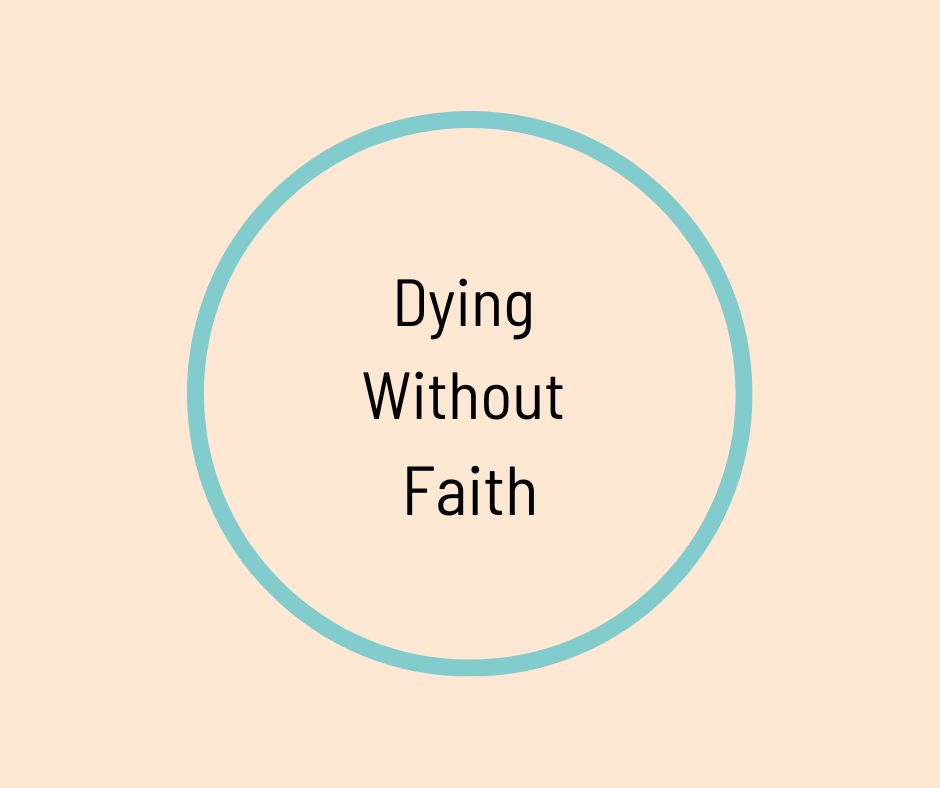Dear Barbara, How does a person transition from caregiving after my loved one's death to restoring my balance, focusing on the new role for my life?
Grief is not about the person who has died. Most religions of the world teach that being dead we are in a better place. Grief is about us and how we react and feel about our life with someone we care about not in it any more. Part of grief is figuring out how to rebuild our life now that a huge part of it is missing. Loss has forced us to change.
Grieving, as so much of living, is hard work. Finding new activities, new direction, new routine, and new focus while your heart is still crying is one of life’s major challenges.
Really, each person finds their own way. There are as many ways of figuring out how to go on living as there are grievers. For those that were a full time caregiver through an illness that ended in death there are additional hurtles.
When we have devoted any length of time to caring for a person that requires a great deal of our time and energy and then that purpose in our life is gone we often flounder. We had developed a routine to our daily life and now there is none. What to do to fill the day, how to find, let alone create, a new routine are questions confronting us.
We are generally very tired, physically and emotionally, by the time our caregiving is over. Our thinking processes are not what we are used to. We are tired, weepy, aimless, not our usual selves. We are way out of balance.
Be gentle with yourself. Don’t have expectations of how you SHOULD be, what you SHOULD be feeling and doing. There will be functioning days, there will be nonfunctioning days. Crying days, and I think I’m doing better days. Cry days will gradually lessen (but not on any time frame other than your own).
For a while you will not feel like visiting, being with people. People will come to you but it is hard for you to reach out. Eventually you will begin to want to be with others again--a visit, a movie, a lunch.
Eventually you will begin to think about how you are going to fill your days now that they are not filled with caregiving --a job, volunteering, a trip. Think about what you would like to do now that you can. Maybe now it is time to get yourself in shape with better eating habits and exercise.
Think about what makes you happy, what relaxes you, what brings you fulfillment and joy. As you rebuild your life (and that is your task now) fill it with activities and direction that has meaning for you. This is literally a starting over point. As you leave the deep emotional pain of grief and enter the “what am I going to do with my life” part you have the unique opportunity to embrace life in a different way.
We tend to focus on the pain of grieving, it’s emotional lows. I am offering another side, the far side of grief, as an opportunity to direct the life you have with the life you want. Let the way you figure out how to go on living be the testament to the love and loss that you are experiencing.
Something More... about Reaching for the Far Side of Grief
If your special person was in hospice care, the hospice bereavement team will most likely reach out to you and suggest that you attend a grief group. The thought of going will feel overwhelming, but I strongly encourage you to go. You don't need to do anything at the meeting but listen. You may find comfort there.








2 comments
Barbara Karnes
Hi Mary, in response to your concerns about how your mom is being transferred from bed to a chair: if the hospice nurses are in agreement with this method then Just go with it. If they aren’t in agreement I hope , for the safety of their patient, they will get your sister to get a lift. I think the bigger problem here is your well being. It sounds like emotionally your mother’s illness, your brother’s death and the dynamics with your sisters is just too much right now. I suggest you talk with your mom (if she is able to understand you. If not don’t have the talk) and tell her you are going to “pull back” a bit from being involved with her care. You love her but need some time away. I’m not sure you even need to tell your sister’s since it sounds like they pretty much do their own thing with or without you. Just don’t visit or call as often. If they ask just say you need some time away. Be honest, you are feeling emotionally drained and need to take care of yourself so you can continue.
I am glad you are going to a grief support group. You might talk with the leader of the group and tell her your situation. All that is happening in your life right now affects how you are grieving your brother’s death. The time frame (4 months) is often when the numbness wears off and grief hits you like a brick. I think that is affecting your ability to deal with you mother and sister dynamic, best just to back away for a while.
My thoughts are with you. Barbara
Hi Mary, in response to your concerns about how your mom is being transferred from bed to a chair: if the hospice nurses are in agreement with this method then Just go with it. If they aren’t in agreement I hope , for the safety of their patient, they will get your sister to get a lift. I think the bigger problem here is your well being. It sounds like emotionally your mother’s illness, your brother’s death and the dynamics with your sisters is just too much right now. I suggest you talk with your mom (if she is able to understand you. If not don’t have the talk) and tell her you are going to “pull back” a bit from being involved with her care. You love her but need some time away. I’m not sure you even need to tell your sister’s since it sounds like they pretty much do their own thing with or without you. Just don’t visit or call as often. If they ask just say you need some time away. Be honest, you are feeling emotionally drained and need to take care of yourself so you can continue.
I am glad you are going to a grief support group. You might talk with the leader of the group and tell her your situation. All that is happening in your life right now affects how you are grieving your brother’s death. The time frame (4 months) is often when the numbness wears off and grief hits you like a brick. I think that is affecting your ability to deal with you mother and sister dynamic, best just to back away for a while.
My thoughts are with you. Barbara
Mary Baker
I sent you a comment, in the past few months, with concerns about my mother-I think it was about her eating and drinking; I certainly appreciated your response.Then there was a second one, because I was needing support, from nonfamily,regarding the difficult atmosphere surrounding the caregivlng of my mother. My only brother died four months ago, from a fast and furious rare form of cancer that took him within four months of the diagnosis. I am attending a grief recovery support group,which is helping me heal, at my own rate. Thankfully, my husband and our sons are very supportive. Along with this grief is the anticipatory grief of my mother’s passing. It is becoming a bit more difficult to caregive,even though it is with my two sisters and a reliable homehealth aide. Of course, Mom ‘s “schedule” varies day to day, which causes some anxiety in itself: this is magnified by the controlling personalities of both of my older sisters. Your blue booklet, and 4 or 5 hospice nurses, have helped me immensely- knowing in my heart that I am trying to allow Mom to die, as her body and her soul deem. Simply put, I am getting tired, yet feel that I can’t step out at this late date. In ways, I am distancing myself emotionally from the situation,yet still giving care the best I can. A question: would you consider it safe and wise to transfer a bedfast elderly person on a blanket, 2 lifting and 1 guiding the feet.from bed to a Broda chair?The host sister has facilated this, rather than request a hoyer lift. She claims Mom loves the change of scene,which I can imagine,but there is concern for her safety and physical health.This sister is not reasonable, or open to oppositon from close family nor to wise counsel from healthcare professionals.Thanks so much for your support! Mary
I sent you a comment, in the past few months, with concerns about my mother-I think it was about her eating and drinking; I certainly appreciated your response.Then there was a second one, because I was needing support, from nonfamily,regarding the difficult atmosphere surrounding the caregivlng of my mother. My only brother died four months ago, from a fast and furious rare form of cancer that took him within four months of the diagnosis. I am attending a grief recovery support group,which is helping me heal, at my own rate. Thankfully, my husband and our sons are very supportive. Along with this grief is the anticipatory grief of my mother’s passing. It is becoming a bit more difficult to caregive,even though it is with my two sisters and a reliable homehealth aide. Of course, Mom ‘s “schedule” varies day to day, which causes some anxiety in itself: this is magnified by the controlling personalities of both of my older sisters. Your blue booklet, and 4 or 5 hospice nurses, have helped me immensely- knowing in my heart that I am trying to allow Mom to die, as her body and her soul deem. Simply put, I am getting tired, yet feel that I can’t step out at this late date. In ways, I am distancing myself emotionally from the situation,yet still giving care the best I can. A question: would you consider it safe and wise to transfer a bedfast elderly person on a blanket, 2 lifting and 1 guiding the feet.from bed to a Broda chair?The host sister has facilated this, rather than request a hoyer lift. She claims Mom loves the change of scene,which I can imagine,but there is concern for her safety and physical health.This sister is not reasonable, or open to oppositon from close family nor to wise counsel from healthcare professionals.Thanks so much for your support! Mary